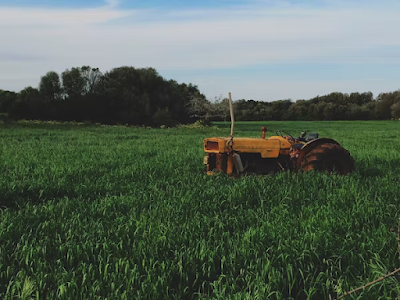Organic farming the divine farming
Organic farming the divine farming
 |
| Organic Farming |
Organic farming will benefit our life, to lead a healthy life. with organic farming, we can avoid diseases caused by chemicals used in conventional farming and enhance the quality of water found within gardens.
According to Dharamshala Sandhu, Director (Crop Life) at Farm India Association of North Andhra Pradesh and South Tamil Nadu, "the more green living spaces are built from sustainable materials like carbon offsets and recycled glass or wood products like palm oil, that is because these plants contribute significantly towards making the soil healthier, which enhances biodiversity without polluting them. Farmers from all throughout the state make up the association, which offers seeds and guidance on enhancing crop growth conditions through plant breeding and other agronomic practices. This study was conducted as part of a collaboration between farm organizations across the Nandigram district.
Benefits of the organic farming are:-
- IT’S BETTER FOR FUTURE GENERATIONS
- IT’S BETTER FOR THE SOIL
- IT’S BETTER FOR RIVERS
- IT’S MORE SUSTAINABLE
IT’S BETTER FOR FUTURE GENERATIONS
Antibiotics are frequently administered to cattle on large dairy farms to hasten their growth and stave against illnesses. However, they are utilized at such high levels that the animals are building a resistance to their healing powers and developing painful infections where bacteria can be passed to humans.
IT’S BETTER FOR THE SOIL
Everyone has heard of the "friendly bacteria" found in probiotic beverages that help with digestion. It turns out that they are as useful in the soil! And you need a lot of them if you want to raise robust, disease-free crops. Believe it or not, there are 600 million to a billion of them in just one teaspoon of compost-rich, organic soil. However, if you fill that same spoon with dirt that has been chemically treated, the number reduces to just 100! "Healthy soil leads to healthy plants, which lead to healthy animals, which lead to healthy humans," as said by Alasdair Smithson of FarmStyle.com.au.
IT’S BETTER FOR RIVERS
Numerous oil-based herbicides and fertilizers used on crops end up in our waterways where they kill millions of fish, birds, mammals, and marine plants. When toxic algal blooms occur in rivers and lakes, the water becomes contaminated and anyone who comes into touch with it or consumes an infected fish may experience diarrhea, fever, or headaches. Rivers and the wildlife they sustain can flourish because organic farming uses much less water and generate significantly less garbage.
IT’S MORE SUSTAINABLE
Organic farming generates 40% fewer carbon emissions, uses 20% less water, and consumes 45% less energy than conventional farming. The second-largest source of greenhouse gas emissions in Australia is agriculture, much of which is caused by nitrogen-based fertilizers, which are prohibited on organic farms.
To my favourite readers, This is my message for you. promote organic farming for the future. It will build a stronger, physically and mentally healthier generation.








Leave a Comment